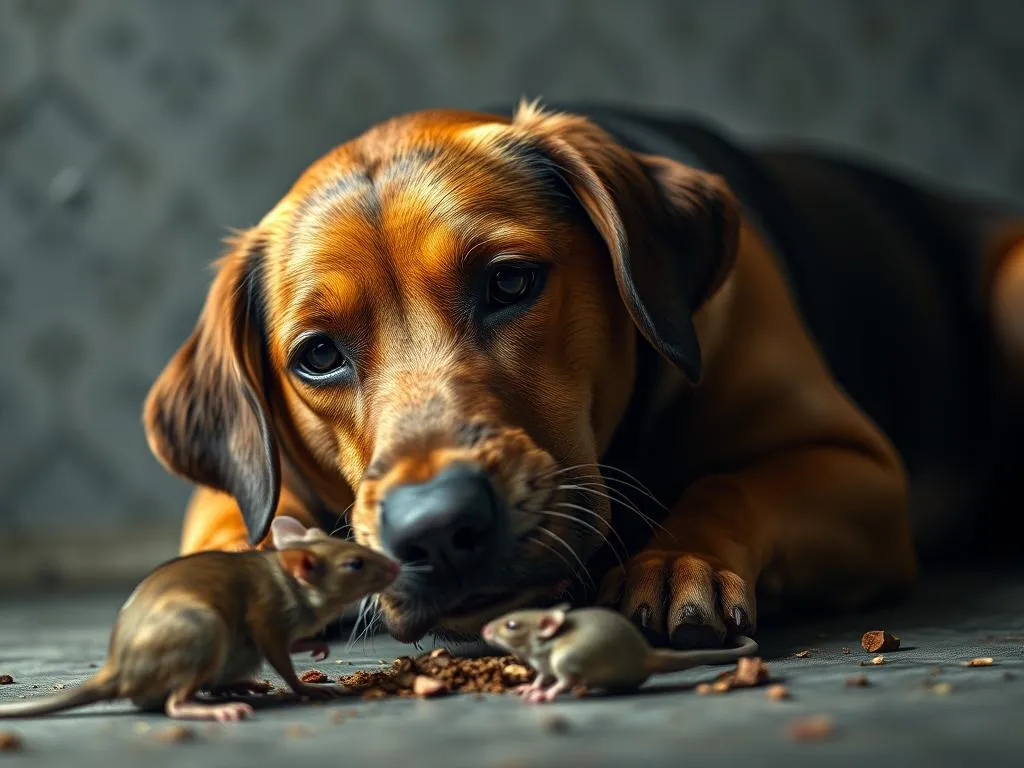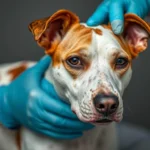
Introduction
Dog health care is vital for every pet owner, ensuring our furry friends live long, healthy lives. One of the alarming issues that can arise is the ingestion of rat poison. This can be a life-threatening situation, making it crucial for dog owners to be informed about the potential dangers and the steps necessary for recovery. Understanding how to recognize the signs of rat poison ingestion, knowing the immediate actions to take, and being aware of recovery options can make a significant difference in outcomes. Let’s explore whether dogs can recover from eating rat poison and what you need to know.
Understanding Rat Poison
What is Rat Poison?
Rat poison comes in various forms, with the most common types being anticoagulants, bromethalin, and cholecalciferol.
- Anticoagulants: These are the most prevalent type of rat poison. They work by preventing the blood from clotting, leading to internal bleeding.
- Bromethalin: This neurotoxin affects the brain and can cause severe neurological damage or even death.
- Cholecalciferol: This type raises calcium levels in the blood to toxic levels, leading to kidney failure.
These poisons are typically used in households and gardens to control rodent populations but pose significant dangers to pets that may accidentally ingest them.
Signs and Symptoms of Rat Poisoning in Dogs
Recognizing the signs of rat poison ingestion is critical for timely intervention. Immediate symptoms can include:
- Vomiting: A common first sign that something is wrong.
- Diarrhea: This can occur as the body attempts to expel the toxin.
- Lethargy: Your dog may become unusually tired or unresponsive.
- Seizures: In severe cases, neurological symptoms can manifest, leading to seizures.
If left untreated, long-term effects can include chronic health issues such as liver or kidney damage. Being able to identify these symptoms early is essential for effective treatment.
What to Do If Your Dog Eats Rat Poison
Immediate Actions to Take
If you suspect that your dog has ingested rat poison, it’s important to remain calm. Here’s what you should do:
-
Assess the Situation: Determine how much poison your dog may have ingested and observe any immediate symptoms.
-
Contact Your Veterinarian: Call your vet or an emergency animal clinic right away. They are best equipped to provide you with the necessary guidance.
-
Inducing Vomiting: Do not attempt to induce vomiting without professional advice. If your vet recommends it, they will guide you on how to do it safely.
-
Provide Information: Be ready to inform the veterinarian about the type of poison, the estimated amount ingested, and the time of ingestion. This information is vital for effective treatment.
Veterinary Intervention
Once your dog is at the veterinary clinic, several treatments may be administered based on the type of poison ingested:
- Activated Charcoal: This may be given to absorb the toxin and prevent further absorption in the body.
- Antidotes: Specific antidotes can be provided based on the type of poison. For example, Vitamin K is effective for anticoagulants.
- Intravenous Fluids: Supportive care, including IV fluids, can help maintain hydration and support kidney function.
Follow-up care is critical, as monitoring your dog for any delayed reactions or complications is necessary for a full recovery.
Can Dogs Recover from Rat Poisoning?
Factors Influencing Recovery
Several factors can influence whether dogs can recover from eating rat poison:
- Type of Rat Poison: As mentioned, different poisons have different mechanisms of action which can affect recovery rates.
- Amount Ingested: Larger quantities can lead to more severe symptoms and complications.
- Time Elapsed Since Ingestion: The sooner treatment is initiated, the better the chances of recovery.
- Dog’s Overall Health and Age: Younger, healthier dogs may recover better than older dogs or those with pre-existing conditions.
Case Studies and Statistics
Recovery rates can vary significantly based on the factors outlined above. For instance, studies show that dogs exposed to anticoagulant rat poisons have a relatively high recovery rate, especially if treatment is initiated quickly. Veterinarians have reported numerous cases where timely intervention drastically improved outcomes, with many dogs returning to normal health after receiving appropriate care.
Long-term Health Implications
Even after recovery, some dogs may experience long-term health implications due to rat poison ingestion. Potential side effects include:
- Kidney Damage: Especially after cholecalciferol ingestion.
- Liver Damage: Results from prolonged internal bleeding or toxin exposure.
Regular veterinary check-ups post-incident are essential. Watch for any signs of long-term damage, such as changes in appetite, weight loss, or unusual behavior.
Preventing Rat Poison Ingestion
Safe Use of Rat Poison
If you must use rat poison in your home or yard, consider these safety tips to protect your dog:
- Choose Pet-Safe Options: Look for alternatives that are less toxic to pets.
- Secure Storage: Always store rat poison in inaccessible areas to prevent accidental ingestion.
Training and Behavioral Tips
Training your dog to avoid harmful substances can be beneficial. Here are some tips:
- Commands: Teach basic commands like “leave it” or “no” to help prevent ingestion of hazardous materials.
- Supervision: Always supervise your dog in areas where rat poison may be present.
Creating a Safe Environment
To dog-proof your home and yard, consider the following measures:
- Regular Inspections: Check your home for any potential hazards, including unsecured poisons or chemicals.
- Fencing and Barriers: Ensure that your yard is secure and that your dog cannot access areas where poisons may be used.
Conclusion
Understanding the dangers of rat poison and its effects on dogs is crucial for every pet owner. Dogs can recover from eating rat poison, but acting quickly is vital. By recognizing symptoms early, taking appropriate action, and ensuring a safe environment, you can help protect your furry friends from this serious threat. Remember, prevention is always better than cure, and maintaining regular veterinary check-ups is essential for your dog’s overall health. Stay informed, stay vigilant, and enjoy a long and healthy life with your beloved pets!









